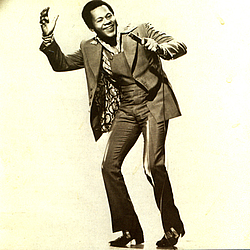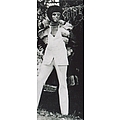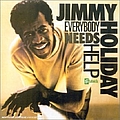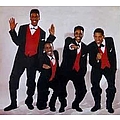Johnny Williams Biography
(There appears to be numerous artists that go by the name 'Johnny Williams'. The one that I 'In2TheBlues' listen to is the one who's Bio follows directly below. I also uploaded 3 images of the artist.) One might think the boy from Goose Creek, Texas would be C&W, but Johnny Williams loves all kinds of music. Some country, the traditional hard core like Alan Jackson and Ray Price, he also loves jazz, old blues, new blues, and the novelty tunes that he writes. Williams says all genres have it"s own soul and if it" s soulful he feels it. "There's no way I can explain it," he says. "I was not from a musical family. We didn't sing in the church choir. Never picked cotton. Very few in my hometown even had a guitar much less a band." Being captain of the high school basketball team was his passion. Yet, Johnny Williams, and his band, was king of the Houston dance clubs before disco and DJs killed live club music. Even earlier, Williams' recording of "Long Black Veil" made #1 in Houston and was a regional hit. He-e-r-e's Johnny again... But it did all start in that tri-city area now known as Baytown. His first major influence was Joe Tex, the blues singer. Back then Joe Tex was Joe Arrington. When he was a disc jockey at KREL he was Jivin Joe. "His mother lived next door to my family. When we were very young - he was 4 to 5 years older - we played lots of games, mostly some kind of ball games. I heard a lot of his songs and ideas as I was growing up. He would come by our house when he was in jr. high, entertain us by singing, playing the piano and telling jokes. Joe was extremely funny. He entertained all of Baytown while in high school. We remained friends until he died at age 49. The last time I saw Joe I played in a foursome in an Austin golf tournament with him, my sister Marian, and Darryl Royal. At that time Joe suggested I record some of his songs. I" ve recorded two and plan to do more. My first remembrance of music that really turned me on was Glenn Miller and Hank Williams Sr. But Johnny Williams also grew up in the era when rock and roll was invented; black artists like Lloyd Price, The Spiders, Johnny Ace were getting airplay. He was there when the world heard of Elvis, the Beatles. "While most of the kids grew up listening to The Beach Boys, I was listening to Jimmy Smith, B.B. King, Bobby Blue Bland, and Ray Charles, but I can get goose bumps listening to George Jones, Tony Bennett, John Coltrane or the Houston Symphony." I have so much respect for those guys in the symphony. He might have dreamed about music, but never did much about it until college. "I only sang one time in public, in jr. high; my sister played the piano. I sang, "I'm Yours" and won first place. I never sang in public again until college. Williams went to North Texas State to play basketball, but found that was not his calling. For excitement, he turned to music. He got together with his athletic-fraternity brother, Johnny Nutting. Nutting played lead guitar while Williams played rhythm guitar; Nutting did most of the singing and taught him the song "Long Black Veil," an old song originally recorded by Lefty Frizzle. We used to sing and play all night for all the beer we could drink. Nutting was definitely the star of the show. I was just learning to play and sing. Three years later, switching to the University of Texas, Williams hung around with Joe Tex who by then was periodically working the Austin music scene. "Before he made it big, we played a lot of small towns in that area. He didn't really need me in his band but I would go with him and play what little guitar I knew. When he wasn't performing we would spend hours together at his motel listening to music, hanging out and just having fun. He would stay in Austin 2 or 3 weeks; leave; return 6 months later and we'd do it again. My first trip to Nashville was because of Joe." The audition with Joe Tex's manager didn't work out, but Williams later did a commercial for Dutch Masters Cigars, which the manager instigated. Joe Tex was a huge influence and I learned a great deal from him, Johnny explains. In Austin, Williams met H.L. Hubbard, who was a guitar player leading a band called the Jets at a club on 12th Street called Charlie's Playhouse. He was another huge influence. "He introduced me to jazz and the Hammond B3, (which, along with the piano, is still Williams" favorite instrument). I'd wait until he got off around midnight and go eat barbecue and then listen to music, or he'd teach me guitar until the sun came up." H.L. and Johnny are still great friends, and talk on the phone or visit on a regular basis. In fact Williams spent so much time with the music he didn't get to class. In despair, his mother sent him to a UT guidance counselor to "get him on track." The recommendation: he wasn't ready for college. He should get out there and play music as a profession. Williams dropped out and joined the Air Force. Once again his music came into play: his sergeant in basic training wanted to learn guitar Æ think of the perks! "He would sneak me off base, bring civilian clothes and take me to the clubs to sing." After his discharge, Williams returned to Baytown. One night a friend took him to the most popular club in Houston, Dome Shadows, and had the bandleader call Williams up to sing a few songs. Neither knew it happened to be the last night for the featured vocalist. The band offered him the job. He took it. He didn't know the band had a recording contract. At 23 he recorded "Long Black Veil" as a backside record. The all-night DJ at KILT - "you could get local airplay in those day," he says - flipped it over. It became that runaway local #1 hit. Leaving the Dome Shadows, Williams went to work with Mickey Gilley (before he was famous) at the Nesadel in Pasadena, Texas. Gilley would sing the first 30 minutes of a set with his band. As featured singer Williams would follow with 15 minutes, backed up by Gilley. When Williams left the Nesadel, Johnny Lee took his place. If I had stayed with Gilley I might have been in the Urban Cowboy and recorded a song for the album. Johnny Lee has never thanked me for giving up my job at the Nesadel, Williams says with a grin. He formed his own band immediately after leaving Gilley. After a bunch of "really bad jobs," Williams worked his way up to the upscale Southwest part of Houston. It was one of the first bands in town doing dance music with horns and a "mellotron" which sounded like real strings. Williams turned old fogies" supper clubs into vibrant after-dinner dance clubs. The Royal Coach Inn had lines out the door and down the street. Then it was the Rubaiyat, Spiro's, and other upper class clubs throughout the region. "The Rubaiyat was famous all over Texas. Working and singing at the Rubaiyat was the most fun I ever had." Johnny Lee would occasionally come by and sit in with his band before he recorded "Looking For Love." Mickey Newbury, a famous songwriter, and Williams used to hang out in the late 60" s. There were times when Newbury used Williams as a sounding board for some of the songs he wrote before he went to Nashville. There was never a doubt in my mind that Newbury would make it big. He wrote the prettiest melodies. It was around this time that Williams signed with Epic records. His producer while at Epic was a keyboard player for Johnny Cash named Larry Butler. Butler would eventually produce Kenny Rogers to stardom with Lucille. One of the singles released by Epic was, "He'll Break Your Heart." This record almost put Williams on top. Epic records thought this record was going to be a hit for Williams in country and pop. The song was later recorded by Tony Orlando and did become a national hit. Disco fever and recordings changed the club scene forever in 1978. Urban Cowboy became the rage in 1980. Williams headed for Fool's Gold where George Strait - before he made it real big - sang on Willams' night off for a short time. Eventually Williams moved on to Gilley's Honky Tonk in Pasadena for another four-year stint. He did go on the road with Gilley a few times. Williams said he"s grateful that he got to see the entertainment world from that perspective but didn't really enjoy the road. He went back to Gilley"s as a featured vocalist and the leader of the house band until he left Gilley" s in 1987. Subsequently leaving Gilley"s, he did some solo work, but eventually quit singing in night clubs, got married and went into business. He stayed out of the music business for 12 years. But music has inevitably drawn him again. Now Williams says his music is his hobby. Some people play golf or fish. I write, record music and do a lot of reading. I hope to keep on singing and writing for a long time. I"ve been extremely fortunate to work with the best musicians and engineers in the recording industry and it sure has been a lot of fun! If it"s true that it is a far greater thing to travel than to arrive, it" s been a great ride. Content © 2005 Johnny Williams Website Design © 2005 Dominion Design Group
Johnny Williams Lyrics
| Title | |
|---|---|
| 1 | Slow Motion lyrics |
Write a comment
What do you think about Johnny Williams? Let us know in the comments below!
Johnny Williams Albums
| Title | Release | ||
|---|---|---|---|
| 1 | From Philly With Love | ||
| 2 | Pride (Original Film Soundtrack) |
Similar artists
- Vernon GarrettSoul
- Jimmy HolidaySoul
- The Olympics60s/Pop/Soul
- Nate EvansSoul
- Jackie LeePop/Soul
- The Mirettes60s/Soul
- Bunny Sigler70s/Rnb/Soul

















